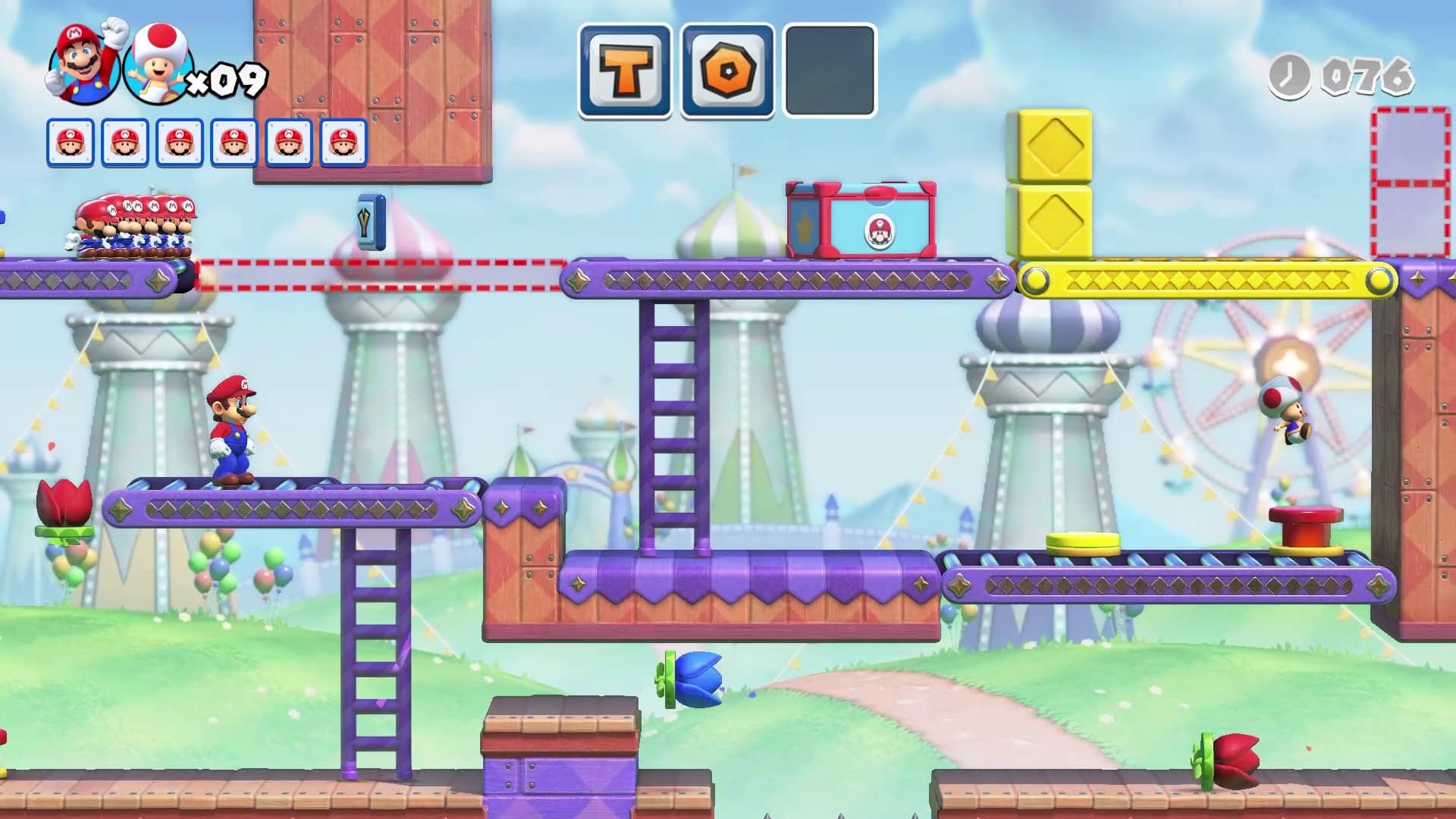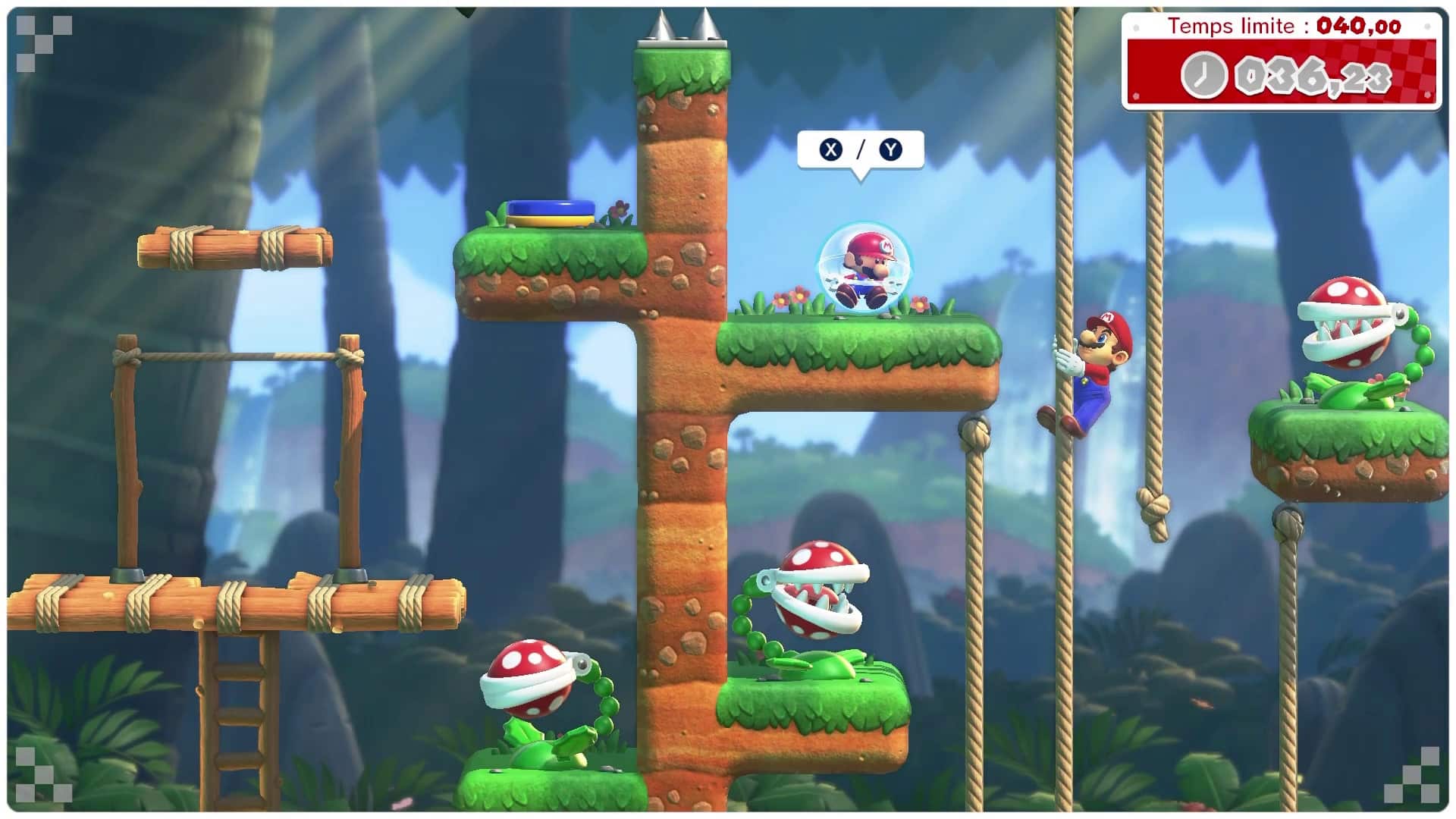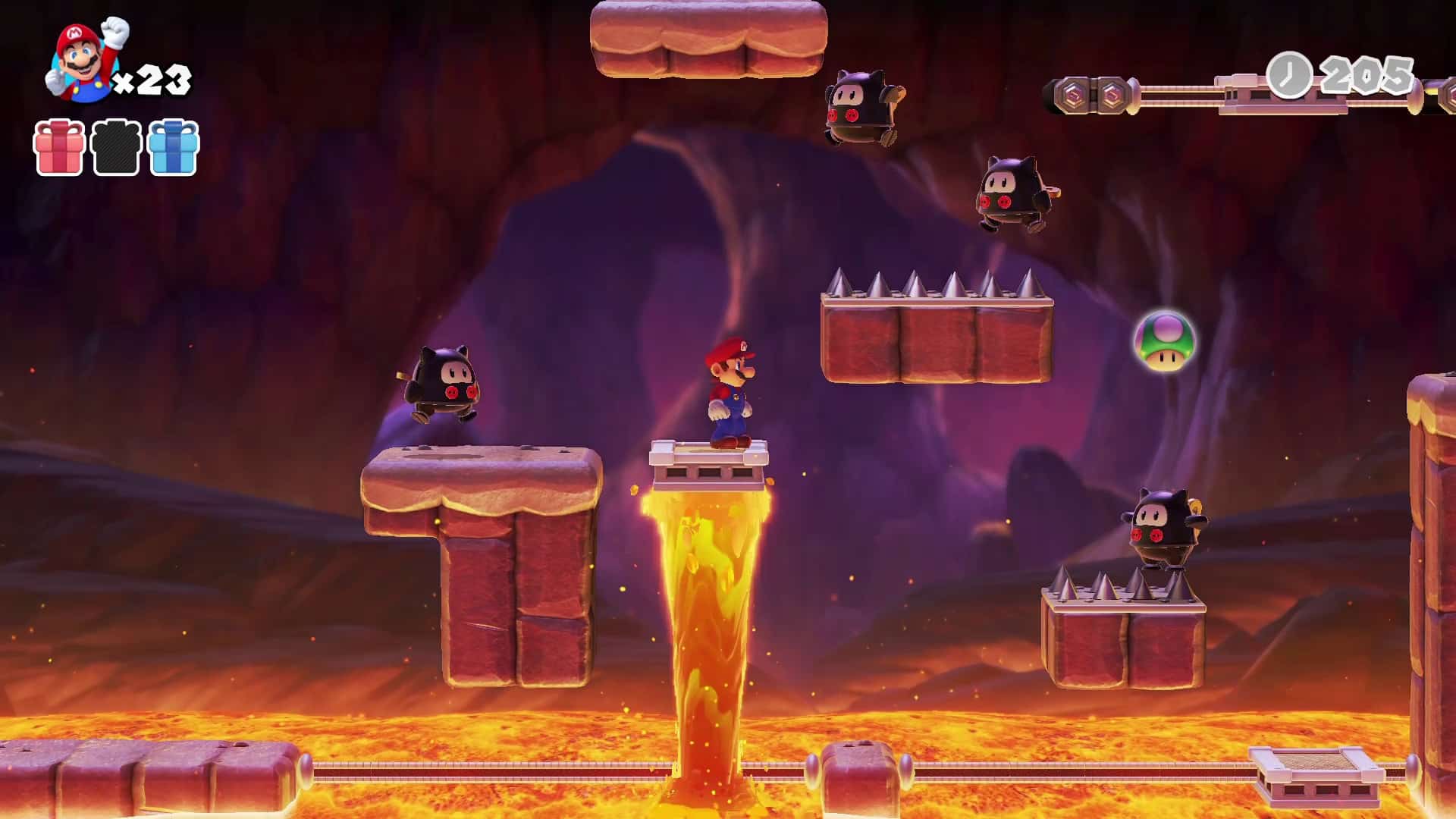Waiting Princess Peach: Showtime and, possibly, news of the future for Nintendo, this start of the year is marked by remakes on the Switch side. After Another Code: RecollectionIt is Mario vs. Donkey Kong which is resuming service on the hybrid console. This is a remake of the game of the same name released on Game Boy Advance in 2004. We finished it and here is what we think of this new version.
Test conditions: We have completed the title on Nintendo Switch OLED. Although we have not completed it 100%, we have unlocked all the available features. We also took over two-player mode.
Advertisement
“Come back DK-K Come back”
Mario vs. Donkey Kong is first of all a big nod to the rivalry of the two iconic Nintendo characters started by the original arcade game from 1981, Donkey Kong. It is not a question here of kidnapping an innocent Pauline, but of toys bearing the image of the mustachioed plumber. Indeed, the problems begin when Donkey Kong comes across an advertisement praising these Mini-Marios. Seduced by these little toys, he lets himself be carried away by his enthusiasm and decides to steal all the production directly from the factory. Arriving too late to stop the thief, Mario sets off in pursuit to recover the precious cargo.
The title obviously takes up the original game design idea of the Game Boy Advance opus, namely a mixture of traditional platform elements in levels taking the form of puzzles. Each level begins with a phase during which Mario must find a key and carry it to a locked door. This done, he begins the second phase, where the goal is to find a Mini-Mario that Donkey Kong has lost. A concept as simple as it is effective and which develops as you progress through the different worlds. As is often the case with Nintendo, the principle is used very well with simple but educational beginnings and a difficulty that gradually increases.
The game stands out for its ingenious level design, which constantly renews the experience by introducing new mechanisms or cleverly reusing those already encountered in more elaborate contexts. In addition, solving puzzles is not completely limited to a single solution because it is often possible to take creative shortcuts thanks to a few well-placed pirouettes (especially since Mario has a large part of his usual movements) or maneuvers with tight timing.
Advertisement
Additionally, each level has a time limit, and exceeding this limit costs Mario a life. For those looking for a less stressful experience, Nintendo offers a Relax Mode, eliminating the time constraint and providing immunity to damage. Unlike classic mode where Mario loses a life if he is hit, in relaxation mode he is automatically placed in a bubble which brings him back to the starting point. A good way to bring together purists and people who hate timers in games in general.
A relevant two-player mode

Despite worlds that constantly refresh the concept, the title does not escape a certain redundancy. It's undeniable, Mario vs. Donkey Kong is much more appreciated in small doses. The fault is too identical a pattern between the worlds which are divided into six levels, followed by a bonus level where we control the Mini-Marios, then a boss fight where we must defeat Donkey Kong. These clashes against the antagonist of this opus are also the most repetitive passages. Especially since the game can sometimes frustrate us when we try to achieve the “Perfect” distinction at each level. This results in the optional collection of gifts scattered throughout the environment, the absence of losses during sequences with the Mini-Mario and finally completing a boss fight without taking a single damage.
Despite the fact that we are facing a remake of a Game Boy Advance game, Nintendo has not been stingy with content even if it is necessary to highlight a certain recycling of the worlds already explored. Mario vs. Donkey Kong offers more than 130 levels, new worlds and a two-player local mode. Having some reservations about multiplayer features in Nintendo remakes, which are often perceived as superficial, we were pleasantly surprised here. Indeed, the second player controls a perfectly autonomous Toad.
What particularly sets this mode apart is the adaptation of the levels for duo play, introducing an additional flying key and a new lock, making cooperation essential. The dynamic is such that the player carrying the original key, having his movements limited, requires close coordination with his partner. There is therefore a real cooperative dimension, in addition to reflection since we often have to agree on who does what. It is even possible to use your partner's head as a springboard. This two-player mode is therefore an excellent surprise in which we had a pleasant time. Especially since this mode can be activated or deactivated via a simple button. Even if your partner is not familiar with the game, its simplicity means that you will quickly get the hang of it.
A nice remake which also allows us to hear Charles Martinet again

For those who prefer to play solo and are looking to take on tough challenges, a time trial mode is unlocked from a certain stage of the game. This involves linking together the two phases of a level respecting a minimum time defined for each of them. This requires jumping and timing skills as fine as clockwork. This is probably the most demanding aspect of the game. However, it is unfortunate that we cannot share our online time with the rest of the world.
We ultimately have little to reproach with this Mario vs. Donkey Kong which offers a very clean remake on all angles. Visually, the redesign is a success, delivering attractive, vibrant levels of color. Although less detailed than in other titles in the Mario saga, they have the right balance to maintain perfect clarity of play. In terms of sound, the re-orchestrated music, although it does not leave an impression, creates an atmosphere perfectly adapted to each environment. The real strong point remains the participation of Charles Martinet for the voice of Mario. Even if these recordings seem like reused sound archives, hearing his iconic voice is always a real pleasure, even if Kevin Afghani brilliantly takes over in Super Mario Bros. Wonder.
